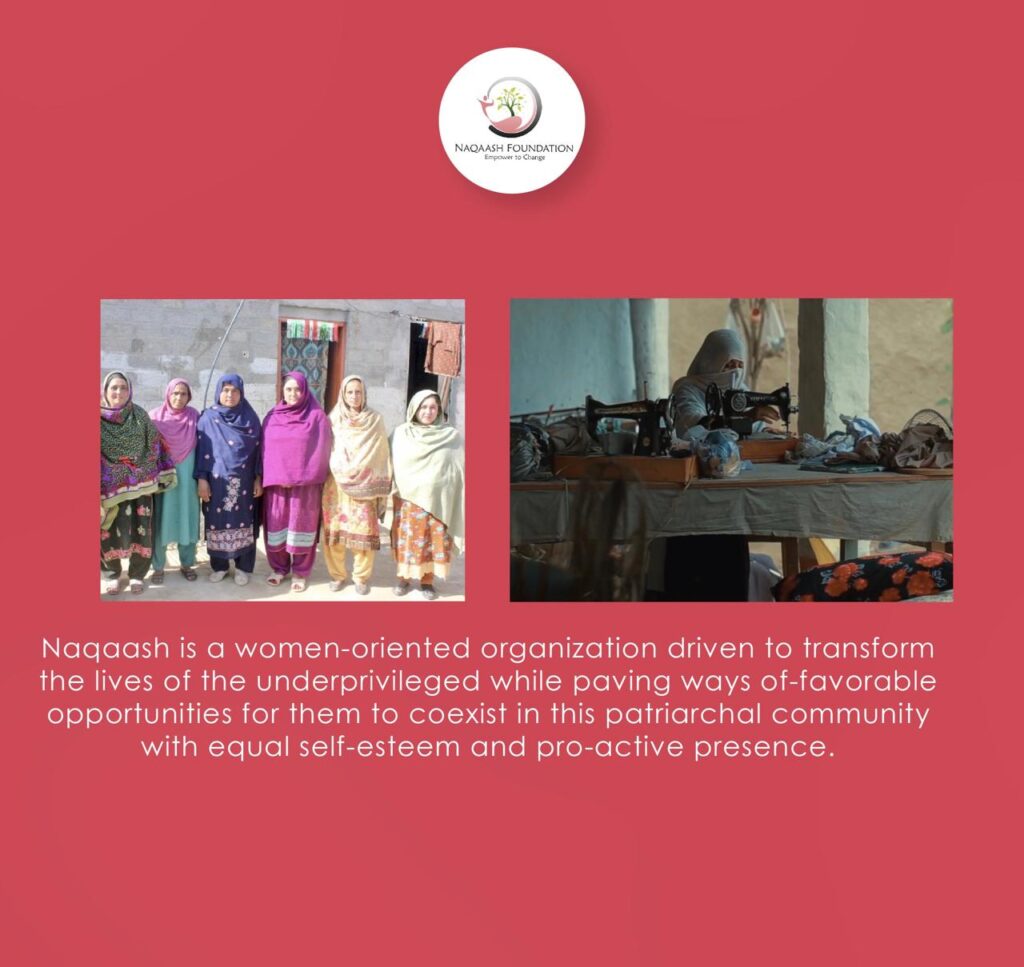
Dummy Project: Empowering Women Through Jewelry Making
Project Title:
Empowering Women in Pakistan Through Jewelry Making and Entrepreneurial Skills
Project Duration:
January 2025 – June 2025
Support Agency:
Naqaash Foundation in collaboration with local and international funding partners.
Project Location:
Targeted rural and semi-urban areas in Punjab and Sindh provinces, focusing on districts with high unemployment rates among women.
Objective:
To empower 300 women from underserved communities in Pakistan by training them in jewelry-making techniques and providing entrepreneurial skills to help them establish sustainable livelihoods.
Key Components of the Project:
Skills Development Training:
- Conduct workshops on traditional and contemporary jewelry-making techniques, including beadwork, metal crafting, and gemstone setting.
- Partner with local artisans and designers to provide hands-on training.
Entrepreneurial Skill Building:
- Teach basic business skills such as budgeting, marketing, pricing, and customer management.
- Provide training on e-commerce platforms to help women sell their products online.
Resource Provision:
- Provide participants with starter kits, including tools and raw materials, to begin their jewelry-making journey.
- Establish a shared resource center where women can access advanced tools and materials at subsidized rates.
Market Linkages and Networking:
- Organize local exhibitions and craft fairs to showcase participants’ creations.
- Build partnerships with online marketplaces to promote and sell jewelry.
- Connect participants with buyers and distributors, locally and internationally.
Monitoring and Support:
- Provide ongoing mentorship and support through Naqaash Foundation’s community centers.
- Set up a peer network for participants to share experiences and collaborate on projects.
Expected Outcomes:
Economic Empowerment:
- 300 women will develop skills in jewelry making, enabling them to generate income and contribute to their households.
- At least 150 women will start their own jewelry businesses or secure consistent freelance work.
Community Impact:
- Enhanced recognition of women’s economic contributions within their families and communities.
- Promotion of traditional jewelry designs, preserving Pakistan’s cultural heritage.
Sustainability:
- Creation of a network of skilled jewelry makers who can mentor others in their communities.
- Establishment of small-scale jewelry-making hubs that can operate independently post-project.
Implementation Plan:
Phase 1: Outreach and Selection (Month 1)
- Identify and select participants through community meetings and local NGO networks.
- Ensure diversity by including women from different age groups and skill levels.
Phase 2: Training and Development (Months 2-4)
- Conduct intensive workshops in collaboration with skilled trainers.
- Focus on both creative and technical aspects of jewelry making.
Phase 3: Market Integration (Month 5)
- Host exhibitions and connect participants with potential buyers.
- Facilitate online store setups and offer digital marketing training.
Phase 4: Evaluation and Sustainability Planning (Month 6)
- Evaluate project impact through participant feedback and sales data.
- Develop a roadmap for scaling up the initiative.
Budget Estimate:
- Training sessions: $15,000
- Tools and materials: $10,000
- Marketing and exhibitions: $5,000
- Mentorship and monitoring: $3,000
- Administrative costs: $2,000
Total Estimated Budget: $35,000
Long-Term Vision:
This project aims to create a sustainable ecosystem where women can harness their creative talents in jewelry making to achieve financial independence, preserve cultural heritage, and inspire future generations to pursue entrepreneurial ventures.
By equipping women with skills and market access, the Naqaash Foundation envisions a future where women are not just artisans but thriving business owners contributing to Pakistan’s socio-economic development.
